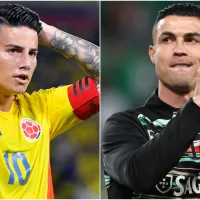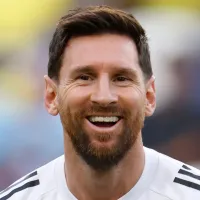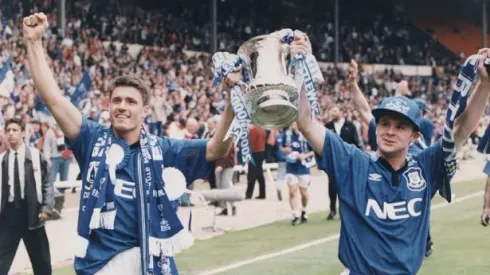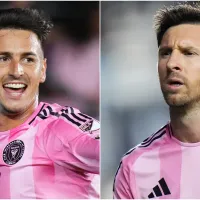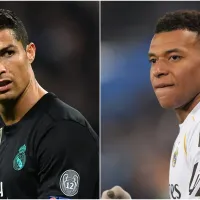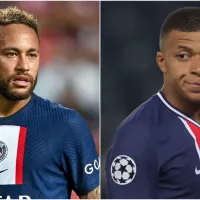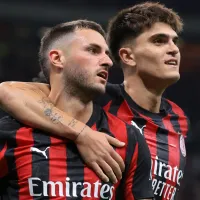
“It was 20 years ago today…”
It’s a phrase that holds particular significance for the people of Liverpool, as the first line in the greatest album ever made: The Beatles’ Sgt. Pepper’s Lonely Hearts Club Band.
But this week it’s a quip which will become sadly relevant for the blue half of the city. That’s because today, May 20, will be two decades on from Everton’s last piece of silverware, when a Paul Rideout goal saw Joe Royle’s “Dogs of War” best Manchester United at Wembley.
For those who have only turned to the sport in the past 20 years, or those who are not old enough to remember the 1995 showpiece, this spell without silverware for Everton in itself may not be huge news. But for a club that has won nine league titles and five FA Cups, the shortage of honors—the second-longest trophy drought in the club’s entire existence—is a worry.
It’s an anniversary that’s prompted a few timely questions. Why has the club’s previous propensity for challenging for trophies abated? What’s being done to prompt a shift in mentality? And why aren’t the club, who have only been in one major final since 1995—the 2009 FA Cup final—even challenging for these piece of silverware anymore?
Since 1995, Leicester City, Swansea City, Middlesbrough, Blackburn Rovers, Wigan Athletic, Birmingham City and Portsmouth have won a trophy. Tranmere Rovers—Everton’s Merseyside rivals, who were recently relegated out of the Football League—have been in as many major finals. With respect to all of those teams, Evertonians have a right to ask the question, “why them and not us?”
In truth, even though Everton won the FA Cup back in 1995, it wasn’t a vintage side. The core of the team who triumphed beneath the twin towers that day were involved in a last-day survival mission against Wimbledon the season before and plenty remained when the Toffees pulled off a similar feat against Coventry in 1998.
But while the club has had much better players in finer teams since, that instinctive trait of standing up when it really matters, whether it be in a last-day fight for top flight status or an FA Cup final, has dwindled ever since Dave Watson lifted the cup two decades ago.
Make no mistake, there are few Blues who would trade the dark days of the late 90s for the current team’s predicament, but Everton have had clout to mount serious challenges for trophies since 1995. David Moyes assembled some excellent squads, spearheaded by the talismanic Tim Cahill and the artistic attributes of Mikel Arteta. But throughout the Scot’s tenure, the Toffees wilted on the big occasion.
In reality, Moyes did little to help matters. The narrative he peddled was centered around Everton being brash, bold underdogs, punching above their weight. While that helped enhance his reputation, as he consistently overachieved up against the standards he himself had helped alter, it allowed an inferiority complex to fester at the the club.
So while Everton made positive strides in terms of league finishes, the teams assembled by Moyes were terrified on the big occasion, as was evident by his atrocious record in cup matches, against Liverpool and when traveling to the likes of Old Trafford, the Emirates or Stamford Bridge; the Scot infamously failed to win at any of those aforementioned venues or Anfield during his 11-year tenure.
Roberto Martinez has done plenty to try and rid the club of these flaws—he’s a man who has immersed himself in the club’s glittered past and photographs of glories gone-by adorn the walls at Finch Farm—taking a bolder approach to his management style. But it’s abundantly clear there are major issues when it comes to the crunch; these players still shy away from the spotlight rather than seek it.
Sadly, it seems this debilitating mentality is now entrenched in the club’s pores, with generations of players falling foul to similar flaws. Of course, there are few Evertonians that expect this club to be winning cups season after season, but for a team that has probably been the fifth or sixth best side in England over the past two decades, one major final and two semi-finals is a disastrous return in that time period.
[interaction id=”555c92d546da847a557cac95″]
Even more harrowing is that this squad—arguably the most talented since the 1985 European Cup Winners’ Cup-winning team—seems just as long a way off winning a trophy as any team before them. Everton crashed out of the League Cup and FA Cup at the first time of asking this season, before putting all their eggs in the Europa League basket and suffering an embarrassing 6-3 aggregate loss to Dynamo Kyiv in the last-16.
Mistakes have been made by this regime and many over the last 20 years, especially in the years preceding the cup win and the ownership struggle between Peter Johnson and current chairman Bill Kenwright. The latter come in for stiff criticism during his tenure, with an apparent search for investment while at the helm bearing little fruit.
But one of the club’s major flaws has been allowing memories of previous frailties to scupper present day pursuits. So Everton, and we, must look to the future and how the club rediscovers a swagger when it comes to these cornerstone encounters.
Granted, it’s harder now than ever to win things. This season, league champions Chelsea played an XI close to their best all the way through their successful League Cup campaign. Plus the financial clout the top teams boast in comparison to the Toffees means the chasm between the best and the rest is eminently preservedly.
But, as Martinez himself often states, team of Everton’s stature need to be creative. Proactive too. Sadly, it’s initiative the club has not shown in its pursuit of silverware, although they’ve re-established themselves amongst the upper echelons of English football’s top flight; it simply has to change.
Looking forward, the club needs to put more emphasis on the cup competitions. While the Premier League is the underpinning foundation of the season, realistically, Everton aren’t going to finish in the top four—that party is closed for the time being—and they aren’t going to go down. So why not go all out for the League Cup? Why not make the FA Cup the priority for the 2015/16?
Trophies may have lost some significance recently, but for a team like the Toffees, lifting silverware after a 20-year drought would do so much to enrich the entire club. Standards would be heightened, Everton would accrue extra prestige and perhaps most critically, a squad of players would suddenly have their entire mentality transformed.
The support would be rejuvenated too. At the moment, Everton in their entirety seem to be in a malaise, sleepwalking towards the future without any real sense of direction or longevity. But to win a trophy would make the fans, as much as anyone, aspire to new levels. We all know it’s admirable finishing in line with expectations, but a timely dose of success and renewed ambition would take the club on further. It’d be a vital wake-up call.
Because at this moment, with the matchday demographic shifting season after season, an overwhelming chunk of the fans who frequent Goodison Park don’t know what it’s like to win a trophy, this writer included. I was just a five-year-old that day and have only very hazy memories of my dad setting off to the capital.
The sad thing is, at this moment, Everton remain a long way off and in terms of a league title, I very much doubt we’ll ever see the club win one again. But this team is group enough to challenge for cup competitions and ultimately, when you support a team with a prestige like the Toffees’, that’s what it’s all about.
Finishing in fourth and securing Champions League football would be brilliant and would have clear benefits. But to see Phil Jagielka stride up the steps at Wembley and hoist either the League Cup or FA Cup above his head would far surpass that achievement; it’d be both enthralling and emotional.
With a few astute decision, some shifting of priorities and the implementation of a steely mentality, it’s still not beyond Everton’s grasp. But should the club continue to indulge in mediocrity for any longer, even the cup competitions could slip out of this reach and the halcyon days of 1995 will be reminisced with a continued, unsettling nostalgia.
Follow Matt on Twitter @MattJFootball

